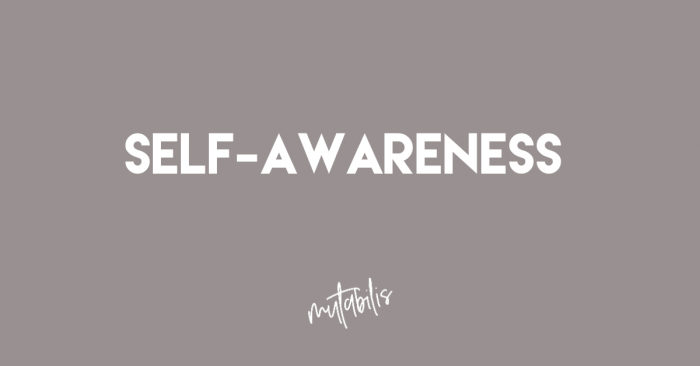We are all so external these days. We choose to give power to devices and apps; which impacts our self-awareness!
Giving away power to these devices is all good and well when the intention is to streamline a process or ensure consistency in a group.
I am not immune to using phrases like, “that’s doesn’t align with my brand”, or even, “That’s not my aesthetic”, and while I do believe that each of us is entitled to believe in whatever we choose I have to be clear, we are NOT a brand. We are a person.
We can create, have or embody a brand but fundamentally, each of us is a Human Being. Let’s put it this way: the brand, or aesthetic, is the application and the Human is the device!
Streamlining the human experience to the basis of an algorithm is a betrayal to the magic of our uniqueness, and it’s time for an intervention.
Devices now come equipped with increasing amounts of ways to limit screen time, schedule wind down and even Ariana Huffington has launched the Thrive app to help us to have the best possible experience without the interruptions of our online presence.
What I found most saddening upon discovering the Thrive app was its name because it immediately made me realise that there was a gap in the market for an application that helps Humans to thrive; something the species had been doing for millennia.
I appreciate the irony of me saying all of this while I sit behind my MacBook Air, connected to wifi and all the while listening to my favourite playlist on Amazon music via my Amazon Echo speaker group.
I love technology, but I find it problematic that it’s easier for me to get a response from a friend on Instagram than to a text or, dare I even say it, a call.
The human experience is a delicate interpersonal dance between engaged and present beings, and it requires the nuances of recognition, rapport and respect.
Before attempting to create an authentic connection with another person, it is vital to such a relationship with yourself. A relationship with yourself requires self-awareness.
How to be self-aware and how to spot it in others:
1. The two ears, one mouth rule!
This rule was drilled into me way back in Primary School by my Teacher because I was a chatterbox! It took me a long time to understand this rule because I engage fully with whatever is in front of me and am full of opinions, ideas and feedback. I love to talk!
That said, as I have matured my gratitude for this lesson has grown with me. A sure way to spot that there is a glimmer of self-awareness is to check out how much they talk. A self-aware person will usually ask a lot of open-ended questions and then listen intently to the answers offered.
2. The perpetual learner mindset!
A self-aware person doesn’t get stuck in a woe is me mindset; preferring to look for the lessons in everything instead.
It can be so easy for misery to find companions in a social media world, and this can ultimately lead to a dependence on external validation or even influence the determination of self-worth based on the perception of others.
The ability to seek out learning in all things is a self-awareness superpower. Of course, self-awareness does not make a person invulnerable to disappointment, but it does make them a stranger to resentment!
3. The ‘what don’t I know’ game!
Knowing that you don’t know everything that you are going to know is another self-awareness superpower.
It’s difficult, if not impossible, to know what you don’t know. This game is not about being clairvoyant, or a modern-day Sherlock Holmes, it is about taking a symbolic step back from a situation and seeing the bigger picture.
People that have mastered this art are usually great to have around in a crisis because they will resist the urge to run around like a headless chicken – this is a great one to master personally too because that kind of stress is exhausting!
4. The gift of feedback!
Criticism doesn’t exist in the world of a self-aware person because they have mastered the art of giving and receiving feedback as a gift.
An example of this is the ‘grammar police’ that patrol the online hallways! We have all experienced a highlighting of our use of there instead of their at some point in our online lives.
Yes, even us writers do it sometimes. No, we don’t appreciate you pointing it out.
The last thing we need in this world is an army of self-appointed critics. The best way to determine if you’re criticising or giving feedback is to work out if you feel smug, or a bit awkward.
Critics are usually smug gits!
5. The reflective practitioner!
Being reflective on the practice of living is having the ability to engage with the world from the position of seeking to understand, not to respond.
This skill is the ultimate self-awareness power!
Truly engaging with the world as an immersive learning environment and being able to create the space for reflection between stimulus and response is, indeed, a powerful skill.
Yoda would declare, The Force is with You, if he experienced a reflective practitioner in a galaxy far, far away, and he would be right!
Practising self-awareness can help reduce anxiety and depression because it creates the ability to be a human having an experience, rather than to be the experience that you are having!
What do you think about these five ways to spot, and obtain self-awareness. Tell me in the comments.











Read 1 comment and reply